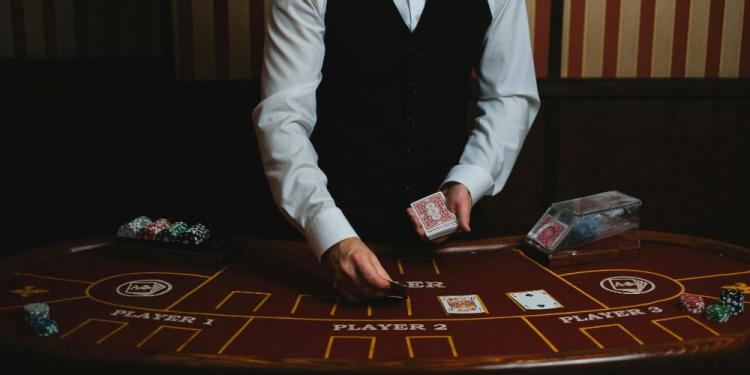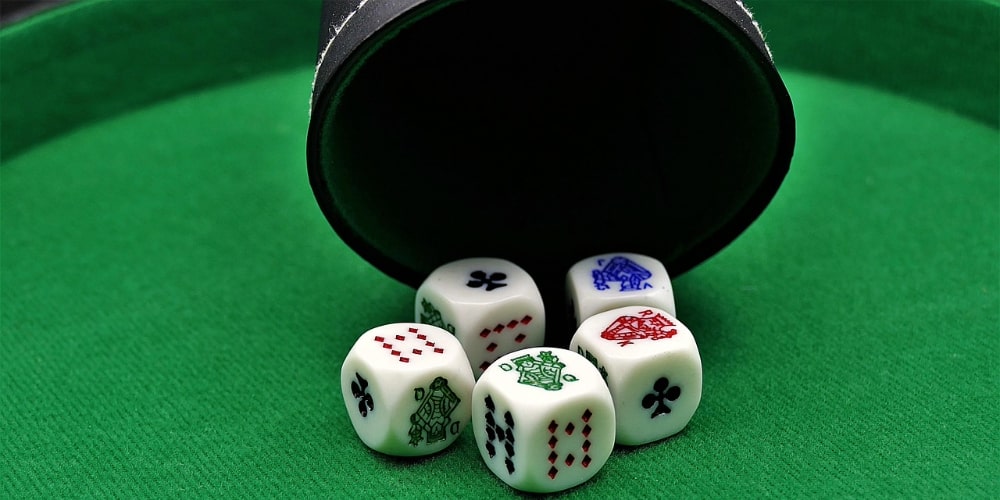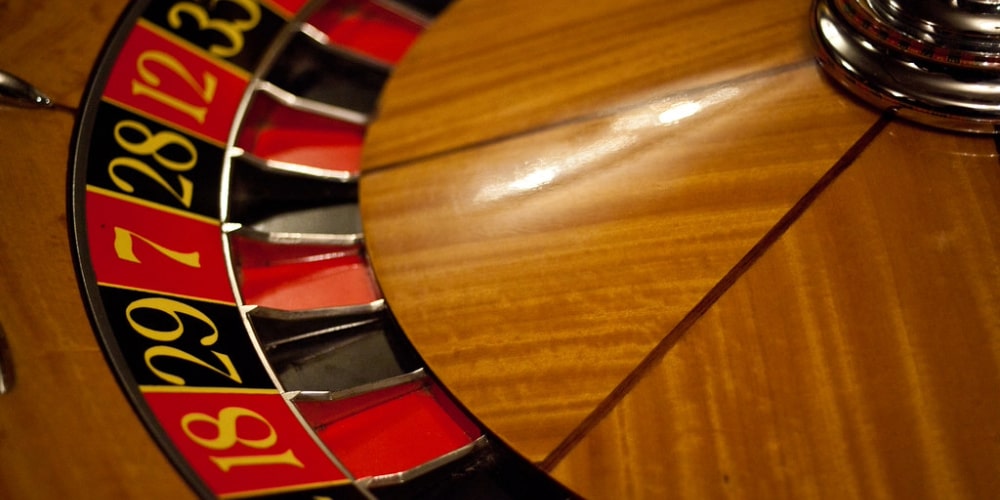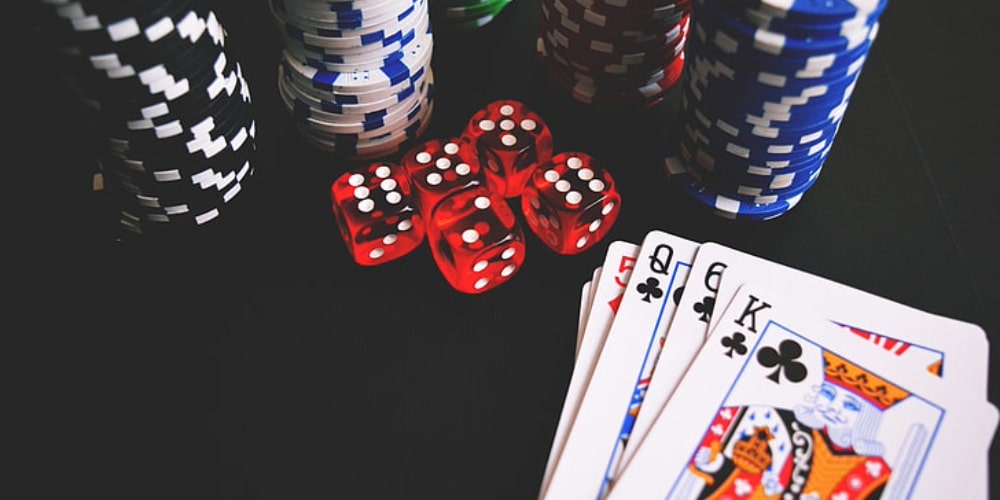Top Reasons You’re Always Choosing The Wrong Odds
Posted: September 25, 2024
Updated: September 25, 2024
Perhaps because betting by nature is mostly reliant on luck, many players fail to take into account the odds. However, by understanding the odds, you'll be in a better position to make bets that have a greater chance of winning. Having said that, many players still insist on making bad bets.

Let’s face it, gambling has been a part of human culture for centuries. Everything from card games to sports betting, has attracted people with the lure of quick riches and thrilling risks. However, one common thing is that gamblers often misinterpret or ignore the actual odds in their favour. This leads to poor decision-making and significant losses over time. Despite the wealth of information available on calculating probabilities, many gamblers are still choosing the wrong odds and end up making irrational bets based on misconceptions or worse, emotional impulses.
This phenomenon raises important questions: why are so many gamblers repeatedly choosing the wrong odds, and what psychological factors drive this wrong-headed decision-making process? To understand why gamblers are consistently choosing the wrong odds, it’s essential that we explore the fundamentals of probability and risk. Odds, which reflect the likelihood of a particular outcome, are often misunderstood.
They can also be skewed by factors like overconfidence, cognitive biases, and emotional attachment to certain bets. Beyond the mathematical miscalculations, other influences like the “gambler’s fallacy,” the illusion of control, and the excitement of gambling can all distort your ability to make sound judgments. This Gamingzion.com article will dive into these topics. We examine how gamblers fail to grasp or act on the odds. We also look at the consequences that arise from ignoring probabilities. By shedding light on these factors, we can begin to understand the psychology behind why so many gamblers are repeatedly choosing the wrong odds.
Understanding The Odds – A Fundamental Concept
At the heart of gambling lies the concept of odds. This is the fundamental principle that dictates the likelihood of a specific outcome occurring. Odds represent the ratio between the chances of success versus failure. They are there to help you understand the potential risk and reward of your bets. For example, if a particular bet has odds of 1:3, it means that for every successful outcome, there are going to be three failures.

However, despite the apparent simplicity of odds, many gamblers struggle to fully grasp how they work. This misunderstanding often leads to a mismatch between perception and reality. A situation where gamblers overestimate their chances of winning or fail to account for the actual risks involved.
Choosing The Wrong Odds With The Gambler’s Fallacy
Several cognitive biases play a key role in why you’re often choosing the wrong odds. One of the most common is the “gambler’s fallacy,” where individuals believe that past outcomes influence future events in games of chance. For instance, after a long streak of losses, you might assume that a win is “due” even though each event is statistically independent. Additionally, many players suffer from overconfidence, thinking they have a special insight or strategy that gives them an edge, despite the mathematical odds being against them.
This distorted understanding of probabilities is further complicated by the allure of high-risk, high-reward scenarios. This includes things such as lottery tickets or long-shot bets, which draw gamblers in with the promise of life-changing payouts, even though the odds of winning are often astronomically low. Ultimately, a failure to correctly interpret and apply the concept of odds may lead you to consistently make poor betting decisions, reinforcing a cycle of loss and frustration.
Examples Of Bad Casino Odds
In casino games, understanding and choosing the right odds is critical if you want to make informed betting decisions. However, many gamblers fall into the trap of choosing the wrong odds, which significantly reduces their chances of winning. These mistakes often arise from a misunderstanding of the games’ mechanics or overconfidence. Or simply falling for emotional decision-making.
Betting On Single-Number Roulette
Roulette is a very popular casino game both in brick-and-mortar establishments and at the best online casino sites in the US, that offers a variety of betting options. However, by far one of the riskiest choices is betting on a single number. While a successful single-number bet pays out 35 to 1, the odds of actually winning are quite poor. In a European roulette wheel, which has 37 pockets, the chances of hitting your chosen number are 1 in 37. This equates to a mere 2.7% probability of success, making it a bad bet over time.
The “Insurance Bet” In Blackjack
In blackjack, the insurance bet is another example of choosing bad odds. Insurance is offered when the dealer’s upcard is an Ace, and it allows you to place an additional bet, wagering that the dealer has a blackjack. While this may seem like a protective measure, the odds are heavily stacked against you. The probability of the dealer having a blackjack is around 30%, meaning the insurance bet loses 70% of the time. Over the long run, taking insurance will deplete your bankroll faster, making it one of the worst side bets in the casino.
Choosing The Wrong Odds With Slot Progressive Jackpots
Progressive jackpot slot machines like Mega Moolah are highly appealing due to their large, life-changing payouts. However, the odds of winning these jackpots are exceptionally low. In most progressive slots, you’ll need to place the maximum bet to be eligible for the jackpot, which increases their risk. Keep in mind that the odds of hitting the jackpot can be as low as 1 in 10 million or worse, depending on the game. While the idea of winning a massive sum is enticing, the extremely low odds and high cost per spin make these games a bad bet if you’re hoping for a consistent win.
Factors Influencing Gambler’s Choices
Here at Gamingzion.com, we can see that there are several psychological and emotional factors that influence why gamblers are often choosing the wrong odds, leading to poor decision-making and substantial losses. One of the most powerful influences is the “illusion of control.”

This is where you begin to believe you can influence the outcome of a purely random event. For instance, in games like roulette or craps, you may feel that your actions, such as throwing the dice with a specific technique or betting based on a pattern, can sway the outcome in your favour. This false belief drives many to bet against the odds. Even though these games found at online casinos like Bet365 Casino are entirely based on chance. Additionally, you might become emotionally invested in your bets, which will also help to cloud your judgement. The emotional attachment to a bet — whether it’s the need to recover from losses or the excitement of a big win — overrides rational analysis, causing you to overestimate your chances and start placing risky bets.
Understanding Cognitive Bias – The Gambler’s Fallacy
Another key factor in choosing the wrong odds is “cognitive biases”, particularly the “gambler’s fallacy” and the “hot-hand fallacy“, which distort how people perceive probability. The gambler’s fallacy is a surprisingly common yet mistaken belief that previous events influence future outcomes in independent random games. For instance, after a series of losses, you might believe you’re “due” for a win, despite each spin of the roulette wheel or roll of the dice being completely unrelated to the previous ones.
This false logic leads to higher-risk bets based on a complete misunderstanding of probability. On the other hand, the hot-hand fallacy occurs when gamblers believe that a winning streak will continue, leading them to take riskier bets with the assumption that their “luck” will persist. Both of these fallacies show how deeply ingrained cognitive distortions can lead gamblers to consistently choose odds that have nothing to do with reality.
The Crafty Design Of Casinos And Casino Games
Additionally, the structure of gambling environments often exploits these psychological tendencies. Casinos and online betting platforms are designed to encourage risk-taking behaviour, using a variety of techniques to keep gamblers engaged and willing to bet on unfavourable odds. According to online casino news in the US, the use of near-misses, where you come very close to winning, triggers a strong emotional response and gives you a false sense of being “close” to a win. This acts to encourage you to keep betting. This psychological manipulation, coupled with sensory stimulation from bright lights, sounds, and fast-paced action, keeps you immersed in the experience.

In truth, this impairs your ability to make rational decisions about the odds. Moreover, the availability of betting opportunities — such as in-play betting on sports or the possibility of making rapid spins on slot machines — makes it easy for you to fall into making impulsive decisions. Often without fully considering the actual odds or risks involved. These environmental and psychological factors combine to create a perfect storm that influences gamblers to be repeatedly choosing the wrong odds. In reality, you are making choices that go against your best interests, which can end up trapping you in a cycle of escalating losses.
Ignoring Probabilities And Choosing The Wrong Odds
If you start ignoring probabilities when gambling, it can lead to severe consequences. These can range from financial ruin to emotional distress and strained relationships. Gamblers who are always choosing the wrong odds often face mounting losses, increased debt, and mental health challenges. These factors can easily begin to extend beyond your personal finances, affecting both your psychological well-being, as well as you social connections.
Choosing The Wrong Odds Leading To Financial Loss And Debt
One of the most immediate and significant consequences of ignoring probabilities and choosing the wrong odds is financial loss. When you consistently choose the wrong odds, you’re doing nothing more than betting against yourself. Even if a gambler experiences occasional wins, the failure to fully understand or account for probability means that losses will outweigh gains over time. Many gamblers fall into the trap of “chasing losses” — trying to recover previous losses by making increasingly larger bets. This stems from the false belief that they are due for a win. This behaviour, often aided by the gambler’s fallacy, can quickly spiral into uncontrollable debt. For some, this financial strain extends beyond personal finances. It can lead them to borrow money or use credit irresponsibly, which in turn can damage their credit ratings and result in long-term financial difficulties.
Psychological And Emotional Toll
Ignoring probabilities at even the best online casino sites like Bet365 Casino doesn’t just lead to financial consequences; it also takes a heavy psychological and emotional toll. If you’re repeatedly choosing the wrong odds, then expect to experience mounting frustration, stress, and anxiety as losses accumulate. This emotional distress can lead to problem gambling behaviour, where you might become consumed by your losses and are unable to stop betting despite these negative effects. The emotional high of a win, no matter how small or infrequent, can act to reinforce a dangerous cycle of overconfidence and risk-taking. This makes it even more difficult for you to step back and assess the odds logically. In the end, it’s a repeated cycle of hope followed by disappointment that starts to take a mental toll, leading to feelings of guilt, shame, and hopelessness.
Breakdown Of Relationships And Other Social Consequences
The consequences of ignoring probabilities by choosing the wrong odds extend beyond the gambler themselves, often affecting their personal relationships and social well-being. As financial losses and emotional distress accumulate, relationships with family and friends can become strained. The need to hide gambling behaviour or the shame of admitting losses may lead to secrecy and deceit, eroding trust within relationships. Financial strain can place additional pressure on your family, especially when shared resources are involved. This can lead to conflicts, separation, or divorce. In extreme cases, problem gamblers may resort to illegal activities to fund their gambling. Over time, the combination of financial, psychological, and relational harm can leave gamblers socially isolated. In this way, your failure to understand and apply probabilities when gambling has far-reaching consequences. At the end of the day, these could affect nearly every aspect of your life.
Choosing The Wrong Odds – Rethinking Strategies And Decision-Makingbetting online
In conclusion, we found that gamblers are choosing the wrong odds due to a complex interplay of psychological biases, emotional influences, and environmental factors that distort their understanding of probabilities. Things like cognitive biases like the gambler’s fallacy and the illusion of control trick players into believing they have a greater chance of winning than they actually do. Emotional attachments, such as the excitement of a potential big win or the urge to recover losses, further cloud judgement, leading you down the road of irrational choices.
These flawed decision-making processes are also reinforced by gambling environments which are designed to exploit these vulnerabilities. The result is often a cycle of poor betting choices, leading to financial losses, emotional distress, and strained personal relationships. However, by acknowledging these tendencies and rethinking gambling strategies, we’re sure that you can develop a healthier relationship with betting and begin to make more informed decisions.
Click here to try the live casino at Bet365 Casino











